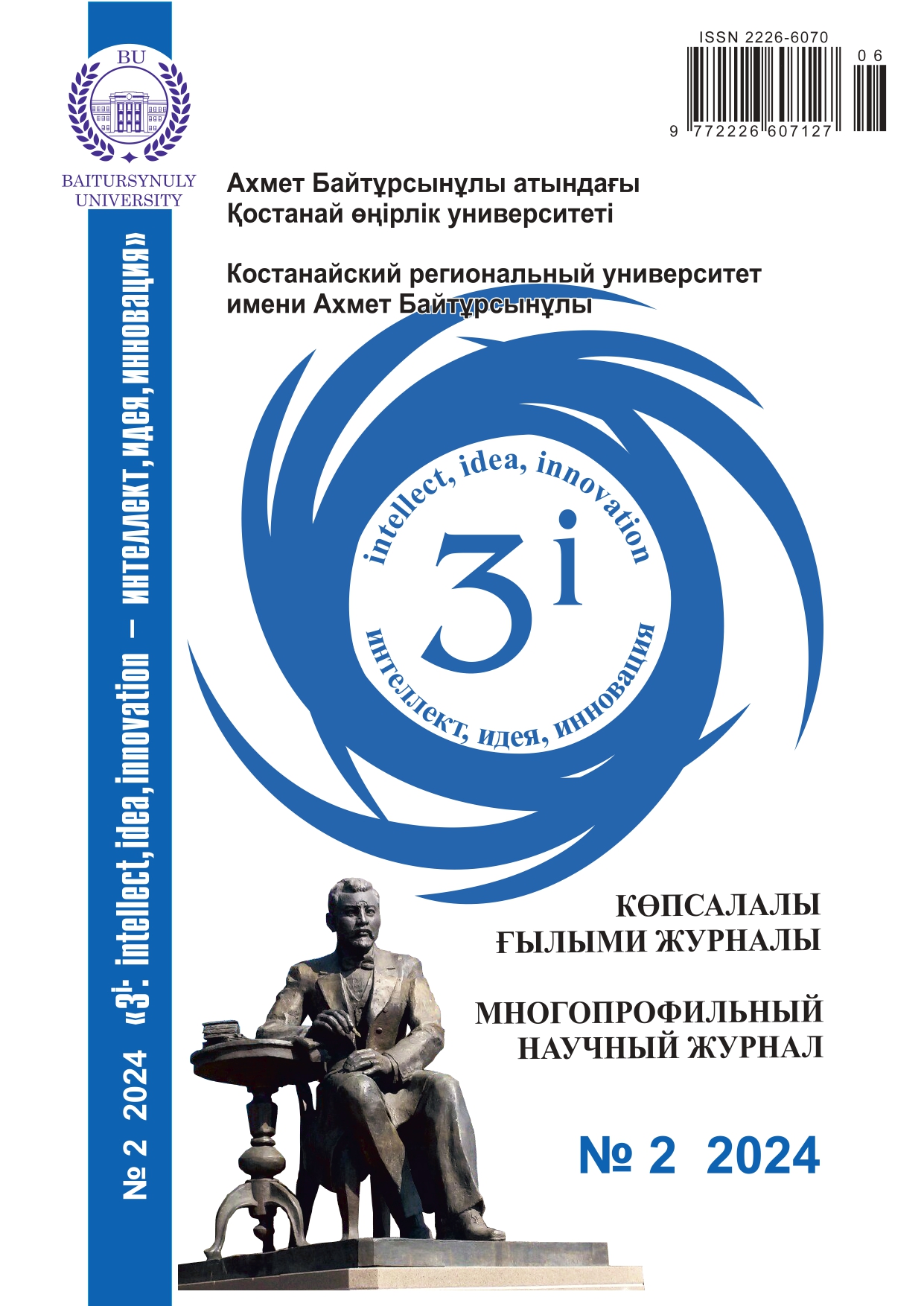ОҚУ ҮДІРІСІНДЕ ФОЛЬКЛОРЛЫҚ ШЫҒАРМАЛАРДЫ ОҚЫТУДАҒЫ ХАЛЫҚ ПЕДАГОГИКАСЫНЫҢ АСПЕКТІСІ
DOI:
https://doi.org/10.52269/22266070_2024_2_239Кілт сөздер:
фольклор, этнопедагогика, тәрбие, ғұрыптық фольклор, теория мен әдістеме, цифрлық технология, ассоциативті экспериментАңдатпа
Ғылыми мақалада фольклордың қалыптасуы жайлы этнографиялық мәліметтер беріліп, ұлттық дүниетаным мен ұлттық кодымызды сипаттайтын мәдени мұраларымыз талданған. Фольклорлық шығармалардың «дәстүрлі тәрбие», «халықтық педагогика», «этнопедагогика» салаларына әсері мен олардың ерекшеліктері, қазақ халқының рухани байлығы мен ұлттық құндылықтарын сақтаудағы алатын орны сияқты мәселелер қарастырылған. Фольклористика ғылым саласына жан-жақты жүргізілген ғылыми зерттеулерге шолу жасалып, отбасы ғұрып фольклоры мәтіндеріне лексикалық, лингвистикалық, лексика-грамматикалық, стилистикалық талдау жасап, зерттеген жұмыстарға тоқталған. Жасалған зерттеулер негізінде халқымыздың тарихи және рухани құндылықтарын фольклорлық шығармалар арқылы арттыру, дәстүрлі мәдениетіміз бен ұлттық тәрбиеміздің құралы ретіндегі маңыздылығы айқындалған. Ата-баба дәстүрі мен ғұрпынан сыр шерткен, өткен өмірі мен ұлттық дүниетанымын сипаттайтын, фольклор жанрының ғасырлар бойы дамып, зерттеліп келе жатқан ғылым саласы екендігін саралаған. Мақалада жоо-да «Халық ауыз әдебиеті» пәні аясында фольклорлық мұрамызды сипаттайтын тілдік бірліктерді сипаттау мақсатында жасалған ассоциативті эксперимент нәтижесі талданды.
Басты мақсаты, ұлт болмысын және халық жадында сақтаған ғұрпын фольклорлық шығармалардың өң бойынан тауып, ұлт тәрбиесіне қолдануды дәріптеу, фольклорлық шығармаларды оқытудың қажеттілігін зерттей келе, теориялық және әдістемелік негізін қалыптастырып, халықтық педагогика негізі ретінде қарастыру.




